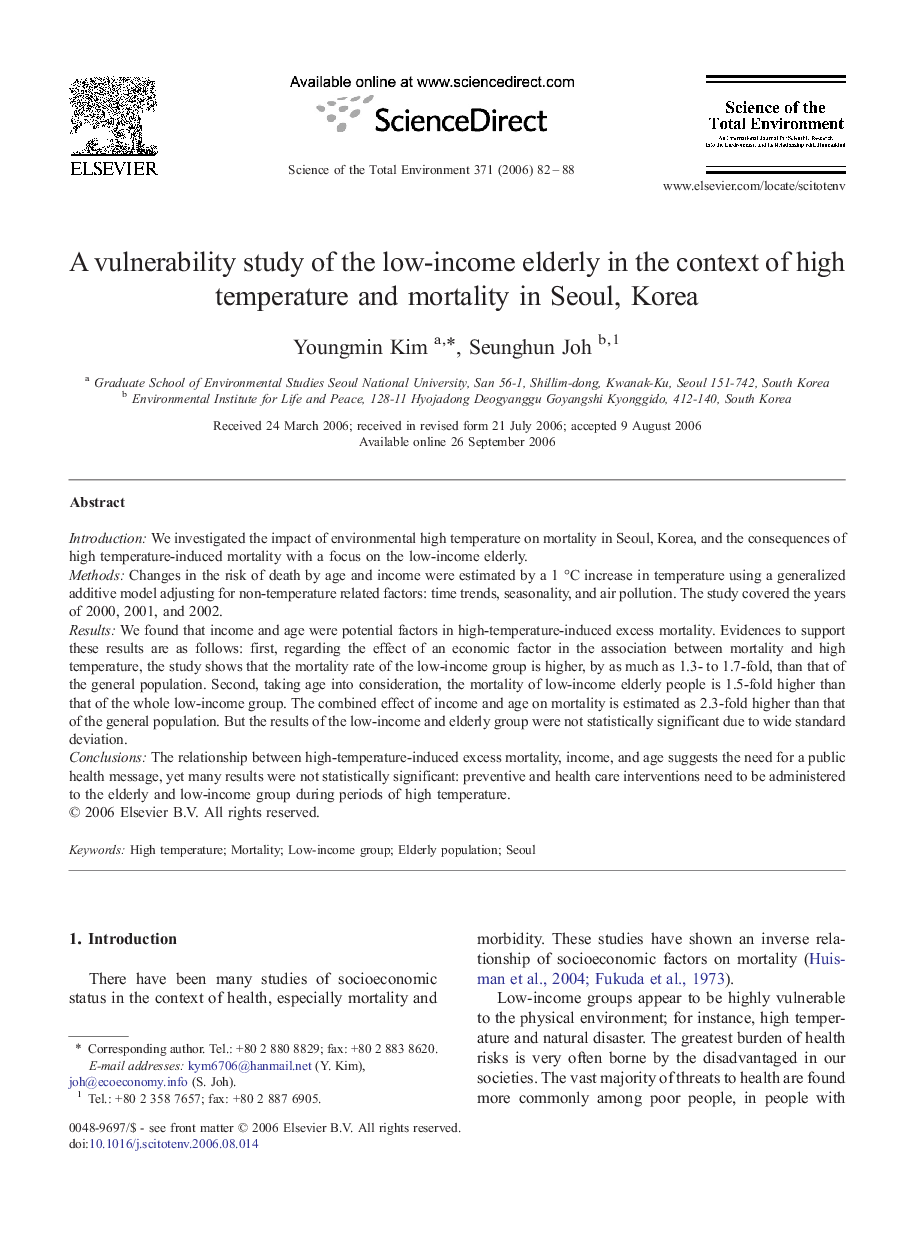| Article ID | Journal | Published Year | Pages | File Type |
|---|---|---|---|---|
| 4433699 | Science of The Total Environment | 2006 | 7 Pages |
IntroductionWe investigated the impact of environmental high temperature on mortality in Seoul, Korea, and the consequences of high temperature-induced mortality with a focus on the low-income elderly.MethodsChanges in the risk of death by age and income were estimated by a 1 °C increase in temperature using a generalized additive model adjusting for non-temperature related factors: time trends, seasonality, and air pollution. The study covered the years of 2000, 2001, and 2002.ResultsWe found that income and age were potential factors in high-temperature-induced excess mortality. Evidences to support these results are as follows: first, regarding the effect of an economic factor in the association between mortality and high temperature, the study shows that the mortality rate of the low-income group is higher, by as much as 1.3- to 1.7-fold, than that of the general population. Second, taking age into consideration, the mortality of low-income elderly people is 1.5-fold higher than that of the whole low-income group. The combined effect of income and age on mortality is estimated as 2.3-fold higher than that of the general population. But the results of the low-income and elderly group were not statistically significant due to wide standard deviation.ConclusionsThe relationship between high-temperature-induced excess mortality, income, and age suggests the need for a public health message, yet many results were not statistically significant: preventive and health care interventions need to be administered to the elderly and low-income group during periods of high temperature.
